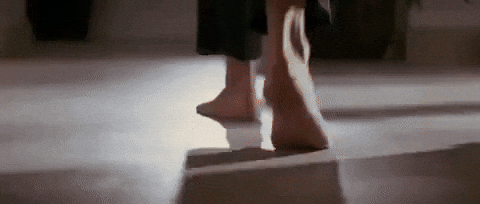- Please Consume
- Posts
- You Do It In The Streets
You Do It In The Streets
Mean Streets is Scorsese’s worldview personified (cinemafied?), a film that takes the subtext of the rest of his career and makes them living, breathing characters.

Good morning Consumers, This is Please Consume, the film newsletter that loves you more than Quentin Tarantino loves feet.




MARTY!!!
Arguably the greatest living filmmaker has a new film in theatres this week, Killers of the Flower Moon.
We are not sure how many more opportunities we are going to get to talk about this beautiful man. So let’s get into it.
Tom, you have the floor…
Mean Streets (1973)
Written by Tom Fortner

Mean Streets is Scorsese’s worldview personified (cinemafied?), a film that takes the subtext of the rest of his career and makes them living, breathing characters.
The tagline says it all: You don’t make up for your sins in church. You do it in the streets…
What’s more Scorsese than that?
Church Street
Marty Scorsese is pretty well known for bringing violent, depraved men to the big screen. Some might call it his specialty. Gangsters, drugs, violence; they all scream Scorsese. But for all his depictions of sin and debauchery, religion proclaims his name as well.
Scorsese’s Catholic roots are well documented. Heck, the guy even wanted to be a missionary when he was a kid. Religious imagery and references are littered throughout his entire filmography from Raging Bull and Bringing Out the Dead to obvious films like Silence and The Last Temptation of Christ. Marty, it would seem, is severely drawn to the condition of the soul. He is concerned with how our actions will be judged.
Equally on his radar is the question of forgiveness. Silence finds a missionary wrestling with the cost of renouncing Jesus as the Son of God and Last Temptation sees Christ himself grapple with the attraction of a life without his divinity. Both are rejecting their spiritual calling, drawn away by the world. Will they be forgiven or judged?
This is the main question at the center of Mean Streets, one of Scorsese’s most spiritual films..
You Do It In The Streets
Charlie (Harvey Keitel) is a young Italian-American man who does small jobs for the mob. No killing, but maybe he’s gotta rough someone up a bit, you know? His pal, Johnny (Robert De Niro), is behind on his payments to a mob affiliated man, Michael (Richard Romanus), who Charlie is also friends with. Most of the film follows Charlie as he plants himself between the two parties, promising Michael that Johnny will pay and trying to get Johnny to cough up the dough.
Here, Charlie plays the role of Johnny’s priest as well as a stand in for Jesus, the Great Interceder. But Johnny just won’t listen and takes none of the advice Charlie provides. The chaos crackles and grows as the film continues because we know that Johnny is going to have to pay for his transgressions.
But Charlie is like Johnny in his own way. Deeply concerned with the condition of his soul, Charlie goes to church and attends confession, but never changes his life outside the holy walls. “If I do something wrong, I just want to pay for it my way,” he says. “So I do my own penance for my own sins.” He quotes Scripture in bars and holds a lighted match to his hand to feel the heat (“The pain of Hell. The burn from a lighted match increased a million times”). As the film barrels toward judgement for Johnny, it asks us the same question about Charlie: will he pay for his sins?
Author’s Note
Much of this write-up was completed with the help of Thomas Flight’s wonderful video essay, The Deep Duality of Martin Scorsese. It is linked below.
Today’s Scene
